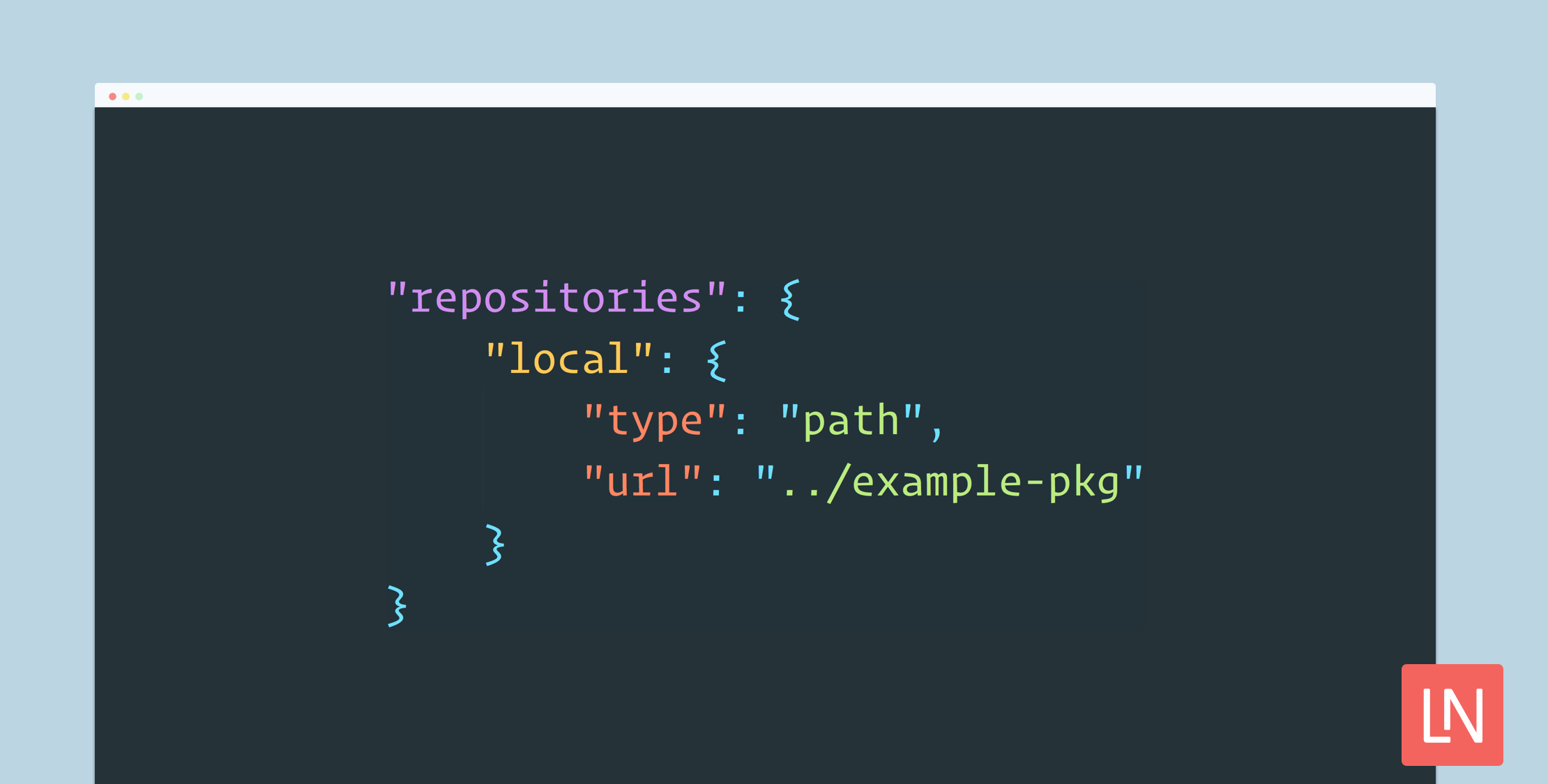Developing Composer packages locally through a local file symlink speeds up development immensely when you want to create Laravel packages and try them out on a real application. I was reading about a fancy bash alias by Caleb Porzio, which is a bash alias inspired by npm link.
I have been working on improving my local workflow for taking a Laravel package from development to release, and I often find myself installing my dependency through the GitHub repo, and then continue running composer update over and over as I update things because I am lazy.
I thought I’d document my workflow for developing new and existing Laravel packages and running them in a real Laravel application, all locally.
Package Setup
I am going to walk you through creating a quick Composer package from scratch and adding a service provider. I know a couple of package developers that use a boilerplate repository as a starting point for PHP and Laravel packages (see Spatie’s PHP Skeleton for inspiration).
First, let’s create an example composer project and hook up a Laravel service provider. I like to start my code from ~/code so update to whatever you use:
cd ~/codemkdir example-pkgcd example-pkg/mkdir src/composer init# Walk through the prompts to init...After you generate the composer.json file, let’s add a few things for autoloading and automatic service providers:
{ "name": "paul/example-package", "authors": [ { "name": "Paul Redmond", "email": "paul@example.com" } ], "autoload": { "psr-4": { "ExamplePackage\\": "src/" } }, "require": {}, "extra": { "laravel": { "providers": [ "ExamplePackage\\ExamplePackageServiceProvider" ] } }}Last, let’s create a skeleton service provider:
<?php namespace ExamplePackage; use Illuminate\Support\ServiceProvider; class ExamplePackageServiceProvider extends ServiceProvider{ public function boot() { # code... } public function register() { # code... }}Linking Your Package to a Laravel Project
Now that we have a local composer project that we can use to start developing a new Laravel package, let’s create a demo Laravel app to link our example package up using a local file path:
cd ~/codelaravel new laravel-democd laravel-demoI encourage you to check out Caleb Portzio’s bash alias, but here’s the static command you would need to link up your local repository:
composer config repositories.local '{"type": "path", "url": "../example-pkg"}' --file composer.jsonNext, we need to run composer require to add the local repository as a dependency. Remember to use the "name" key you defined in the example-package composer file:
composer require paul/example-package Using version dev-master for paul/example-package./composer.json has been updatedLoading composer repositories with package informationUpdating dependencies (including require-dev)Nothing to install or updateGenerating optimized autoload files> Illuminate\Foundation\ComposerScripts::postAutoloadDump> @php artisan package:discoverDiscovered Package: fideloper/proxyDiscovered Package: laravel/tinkerDiscovered Package: nunomaduro/collisionDiscovered Package: paul/example-packagePackage manifest generated successfully.You can see that our package was discovered through the "extra" key in the composer.json file, sweet!
If you check the filesystem, you’ll notice that the package is symlinked, which means you can continue to develop on the package locally and immediately try it out in a demo project:
cd ~/code/laravel-demols -la vendor/paultotal 0...example-package -> ../../../example-pkgNow you have an excellent way to develop Laravel packages locally alongside a Laravel application! Thank you Caleb for the fantastic alias!











